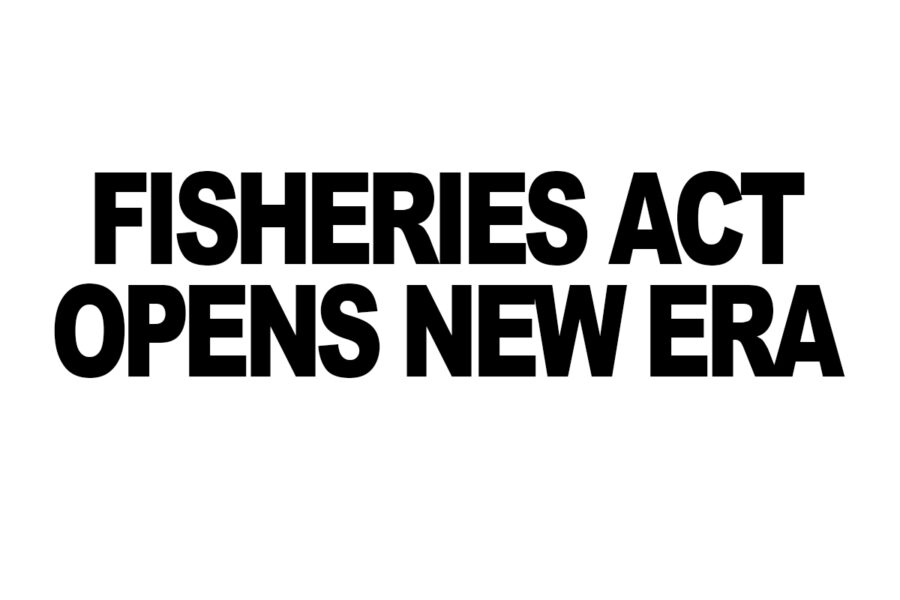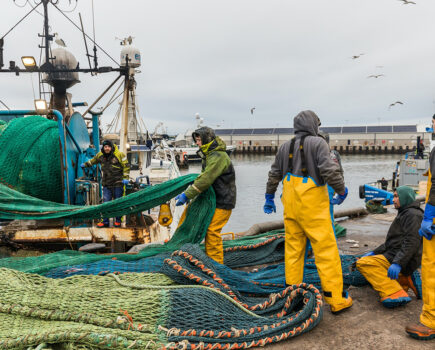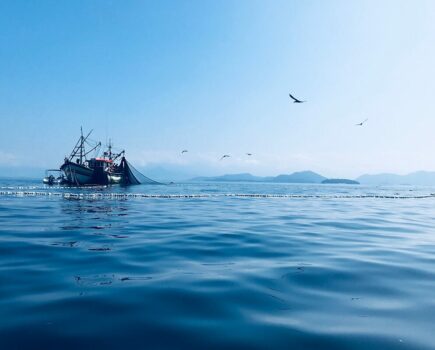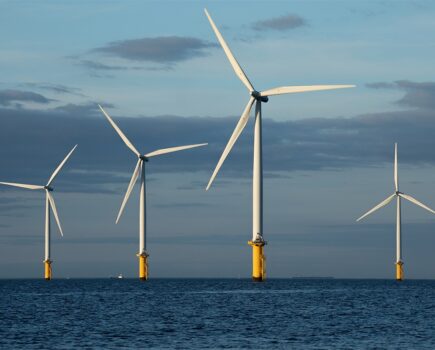Fisheries Act 2020 gives UK full control of waters
First major domestic fisheries law for 40 years
The UK’s flagship fisheries bill became law on Monday last week (23 November), when the bill received the Royal Assent and became the Fisheries Act 2020.
The momentous event marks a watershed for the UK fishing industry in the Brexit process. The act is the UK’s first major domestic fisheries legislation in nearly 40 years, and gives the UK full control of its fishing waters for the first time since 1973.
The Fisheries Act will enable the UK to control who fishes in UK waters through a new foreign vessel licensing regime, and ends the current automatic rights for EU vessels to fish in UK waters.
DEFRA said: “Underpinning everything in the act is a commitment to sustainability, ensuring healthy seas for future generations of fishermen. The UK government and devolved administrations will now develop new fisheries management plans for managing fisheries to benefit the fishing industry and the marine environment.
“Healthy fish stocks, with the prospect of further fishing opportunities delivered through international negotiations, will help drive economic growth for coastal communities around the country by making sure the industry can continue to thrive for years to come.”
DEFRA said that the act places the UK on a firm legal footing as the transition period ends, with the ability to put in place and enforce new rules to protect offshore MPAs, and boosting the government’s ‘blue belt’ of marine protection around England’s coast.
Environment secretary George Eustice said: “This is a huge moment for the UK fishing industry. This is the first domestic fisheries legislation in nearly 40 years, and we will now take back control of our waters out to 200 nautical miles or the median line.
“The Fisheries Act makes clear our intention to continue to operate on the world stage as a leading, responsible, independent coastal state. We will protect our precious marine environment, whilst ensuring a fairer share of fishing opportunities for UK fishermen.
“By swiftly responding to the latest scientific advice and needs of our fishing industries, we will secure a thriving future for our coastal communities.”
Fisheries minister Victoria Prentis said: “The Fisheries Act marks another crucial milestone as we embark on a new journey as an independent coastal state.
“This means that we can tailor our policies to the needs of the UK industry – making the most of the riches of our waters, in harmony with the needs of the marine environment.”
Landmark event
The national fishermen’s federations also welcomed the new act. NFFO chief executive Barrie Deas said the passage of the Fisheries Act 2020 into law was ‘a landmark event’.
He said: “The new legislation has successfully avoided the pitfalls of the Common Fisheries Policy. It provides a balanced framework for a much more agile, flexible system of sustainable fisheries management in the future, consistent with the UK’s new status as an independent coastal state.”
Elspeth Macdonald, chief executive of the SFF, said the fisheries bill becoming law was another important milestone in the Brexit process.
She said: “The Fisheries Act will provide the right legal framework for responsible fisheries management in the UK, and the SFF looks forward to working with both the UK and Scottish governments in taking forward the innovative approaches, such as fisheries management plans, that the act makes provision for.”
DEFRA said that the Fisheries Act allows the government to fund a wider range of fisheries projects, for instance to encourage the uptake of new technologies at sea, improve port infrastructure, and support recreational sea angling. A modernised grant scheme will also be established under the act.
It also equips the devolved administrations with greater fisheries management powers. This means each administration will tailor its approach based on the specific needs of its industries and waters, enabling a move away from the inflexible and cumbersome CFP.
The act also recognises that many fisheries resources are shared stocks, as they swim across borders. For these stocks, negotiation with other countries is crucial, as sustainable catches cannot be achieved through UK action alone, said DEFRA.
The act also goes further than the CFP by ensuring that further action will be taken to minimise the fishing sector’s impact on climate change – for example, by developing policies to reduce emissions from fishing vessels, or encouraging decarbonisation.
Alongside the act, the UK has now secured new bilateral fisheries arrangements, including with Norway, the Faroe Islands, Greenland and Iceland.
“Through such arrangements, the UK will be able to negotiate future sustainable fishing opportunities with other coastal states, in the best interests of our fishing industry and marine environment, now and in the future,” said DEFRA.
The UK government and the devolved administrations will publish a legally binding joint fisheries statement, and develop fisheries management plans to achieve sustainability goals.
The act will end EU vessels’ automatic access right to fish in UK waters, and means that foreign boats will need a licence to fish in UK waters, and will have to follow the UK’s rules. UK boats can continue to access any part of UK waters, as they do now, regardless of whether they are registered in England, Scotland, Wales or Northern Ireland.
Ewing: ‘Scotland better off in EU’
In contrast to DEFRA’s enthusiastic welcoming of the Fisheries Act receiving Royal Assent, Scottish fisheries secretary Fergus Ewing was downbeat in his reaction.
He said that while the act will provide a necessary framework to manage fisheries from 1 January, 2021, the Scottish government continued to believe that the best future for Scotland was as an independent nation in the European Union.
“Nothing in this legislation can compensate for the loss of our biggest seafood markets in the EU and the wider damage that it will cause to our coastal communities,” said the Scottish minister.
“With just over five weeks until the end of the transition period, the UK government must urgently clarify how it will provide us with the multi-year funding which was available from the EU, and support the new powers.
“We will also continue to oppose, in the strongest possible terms, any attempt by the UK government to undermine devolved competence over fisheries and other interests through its Internal Market Bill.
“The Fisheries Act demonstrates what we and many stakeholders have long argued – that frameworks, which are negotiated and agreed by the UK and devolved administrations, rather than being imposed by the UK government, are the only tool needed to manage different policy approaches upon EU exit. The Internal Market Bill is unnecessary, and will cut across the frameworks process and fundamentally undermine devolution.”
Fergus Ewing said that the delivery of the Fisheries Act in Scotland would be supported through the development of Scotland’s future fisheries management plans.
“Sustainability will be at the heart of the strategy, which will be published before the end of the year,” said the Scottish minister.








